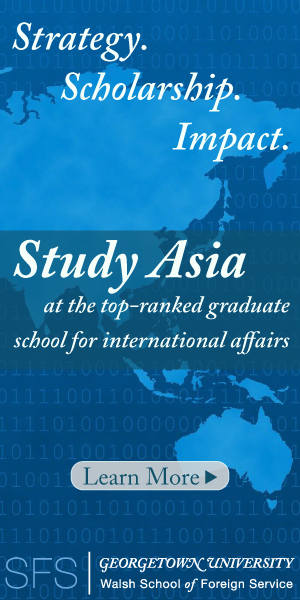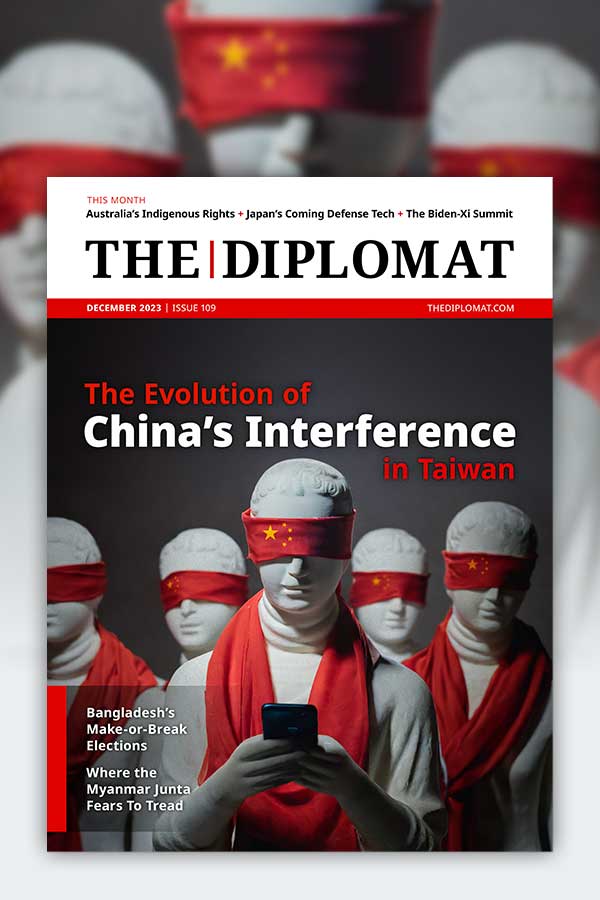| Welcome to the latest issue of Diplomat Brief. This week our top story explores the alarming rise in terrorist attacks in the southern Philippines. We also have an interview with Matthew Smith, the co-founder and chief executive officer of Fortify Rights, about a decade of advocacy in Myanmar. |
| Story of the week | ![[object Object]](https://thediplomat.com/diplomat-brief/2023/vol51/images/feature.jpg?v=1) | Security The Islamic State’s High Stakes War in the PhilippinesWhat Happened: On December 2, an affiliate group of the Islamic State bombed a Catholic Mass in Marawi City, killing four. In the days since, other IS-linked groups have claimed a series of attacks across the Bangsamoro autonomous region – this despite heavy losses inflicted by counterterrorism operations in the southern Philippines. The timing is not coincidental: a pivotal election is looming in Bangsamoro, and extremist groups – including IS – see a chance to derail the 10-year-old peace process. Our Focus: The Moro Islamic Liberation Front (MILF) and the Philippine government reached a landmark peace deal in 2014. Under the deal, an interim government, headed by the MILF, has been overseeing the Bangasomoro autonomous region – but that transition period expires in 2025, when the region is set to vote in its first local government. With that in mind, the Islamic State East Asia (ISEA) “is engaged in a high stakes struggle to derail the Bangsamoro peace process,” writes Haroro J. Ingram, a senior fellow with the Program on Extremism at George Washington University. “The uptick in violent incidents linked to pro-Islamic State groups since the Marawi City bombing suggests that ISEA’s factions may be coordinating in a bid to distract and destabilize the security response.” What Comes Next: The stakes are high for Manila. The historic peace deal freed up crucial resources to address external security issues – including maritime disputes with China in the South China Sea. “With the prospect of a lasting peace in the south, the Philippines has planned to pivot the attention and preparedness of its armed forces towards territorial defense,” Ingram notes. If terrorist groups succeed in derailing the final stage of the peace process, it could force the Philippine military to reorient back to internal security threats. Crucially, the Islamic State itself is well aware of this, with a mouthpiece publication noting that its operations in the Philippines will impact “the global conflict that is still drawing closer day after day between the tyrants of China and America.” Read this story |
| Behind the News | INTERVIEW Matthew SmithMatthew Smith, the co-founder and chief executive officer of Fortify Rights, on the role of accountability in Myanmar’s future: “The military leaders responsible for genocide and atrocities against ethnic nationalities over the years are the same people responsible for the disastrous and failing coup. That’s not coincidental. It’s impunity at its ugliest manifestation.” Read the interview |
| This Week in Asia | Northeast Asia China’s Election Interference in the Spotlight in TaiwanThere’s less than a month left before Taiwan’s presidential and legislative elections. While China’s disinformation and manipulation efforts in Taiwan are long-term, they gain particular prominence during election season – and this year is no exception. Recent headlines in Taiwan have focused on Beijing’s election-themed disinformation campaigns, as well as China’s infiltration of the Taiwanese military. Taiwan’s government, wanting to be seen as proactive, is toughening penalties for espionage. Find out more | South Asia Balochistan’s Protest Movement GrowsIn late November, four Baloch men were killed by security forces in Balochistan. For many Balochs, it was the last straw in a near-constant refrain of enforced disappearances, extrajudicial killings, and other abuses. Thousands turned out to protest, and the movement grew into a larger protest march demanding an end to state-backed kidnappings and the return of the missing. Notably, women are at the forefront of the protests, which are converging on Islamabad in an attempt to have their demands heard. Find out more | Southeast Asia Japan, ASEAN to Bolster Maritime Security CooperationJapan and the Association of Southeast Asian Nations (ASEAN) this week agreed to boost their maritime security cooperation against a backdrop of growing friction in the South China Sea. The pledge came during the ASEAN-Japan Commemorative Summit in Tokyo, which marked the 50th anniversary of relations between Japan and the Southeast Asian bloc. In a joint statement, the two sides committed to “strengthening security cooperation, including maritime security cooperation” and agreed to promote “a rules-based Indo-Pacific region that is free and open.” While China was not mentioned by name, it is not hard to connect the announcement to the recent string of dangerous encounters between Chinese and Philippine vessels in contested parts of the South China Sea. Find out more | Central Asia Central Asia’s Rare Earths May Fuel Energy TransitionIf rare earth elements are the crude oil of the 21st century, then Central Asia and Mongolia may be the Saudi Arabias of these strategic minerals. Across the region, governments are keen to explore, and export, their mineral wealth; meanwhile, the West is seeking alternatives to China to source the materials necessary for a global energy transition. Find out more |
| Visualizing APAC |  | The Voice for Baloch Missing Persons camp in Quetta displays photographs of missing persons, the focus of a major protest movement in Balochistan. See the full picture |
| Word of the Week | Politics Cawe-caweA Javanese expression meaning “intervention,” which has become a hot topic in Indonesian politics. Find out more |
| Scheduling Note | The Diplomat Brief will take a break next week and resume in the first week of 2024. Thank you for reading! |
|  |

![[object Object]](https://thediplomat.com/diplomat-brief/2023/vol51/images/feature.jpg?v=1)

